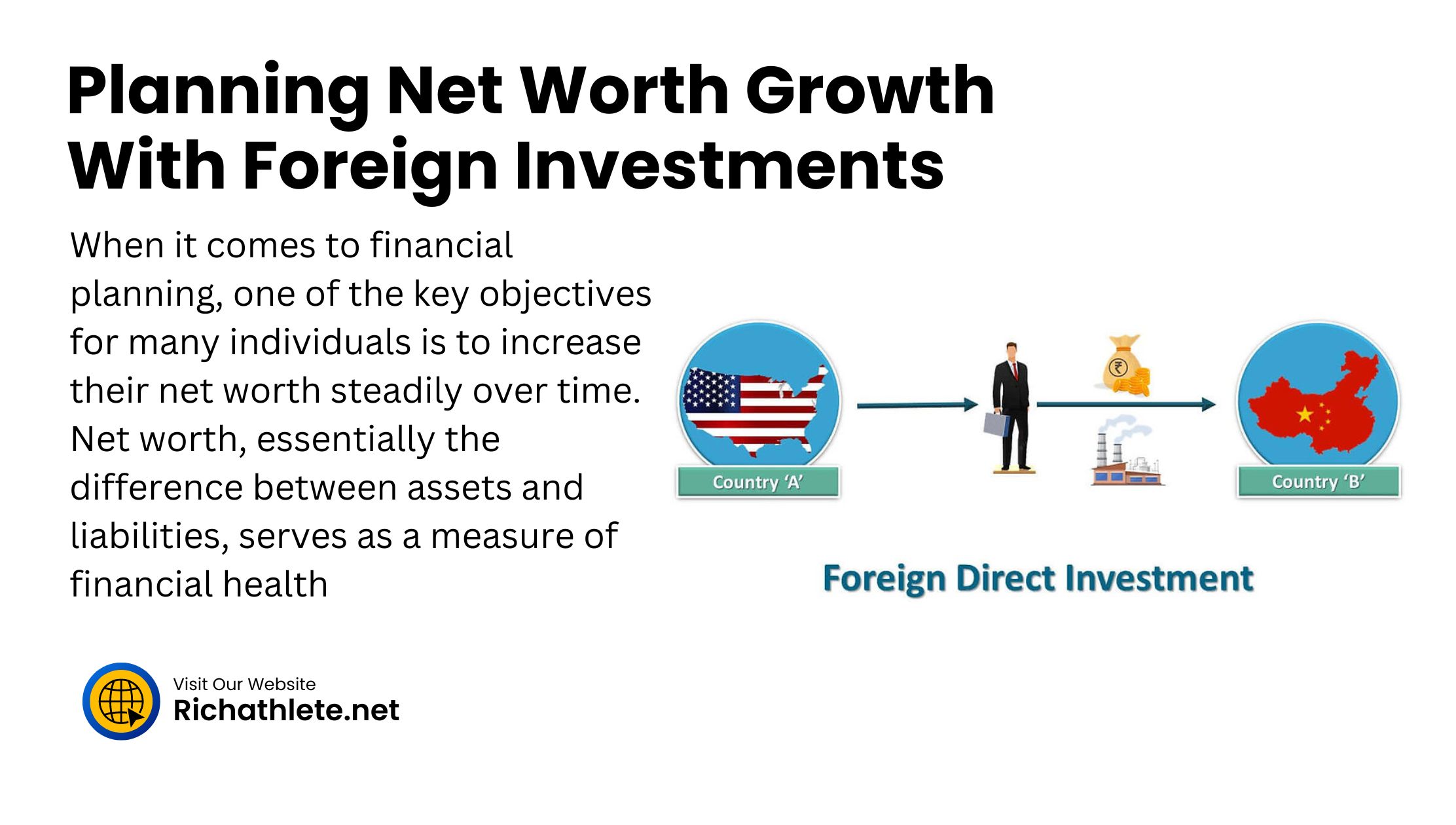Introduction to Net Worth Growth
When it comes to financial planning, one of the key objectives for many individuals is to increase their net worth steadily over time. Net worth, essentially the difference between assets and liabilities, serves as a measure of financial health and stability. While there are various strategies to Net Worth Growth, one often overlooked avenue is through foreign investments.
Understanding Foreign Investments
What are foreign investments?
Foreign investments refer to the allocation of funds into assets or securities located outside of one’s home country. These investments can range from stocks and bonds to real estate and businesses.
Types of foreign investments
Foreign investments can take different forms, including:
- Direct investments in foreign companies
- Purchase of foreign stocks or bonds
- Investment in multinational corporations
- Acquisition of real estate in foreign markets
Benefits of Foreign Investments for Net Worth Growth
Investing internationally offers several advantages for growing net worth.
Diversification of portfolio
By adding foreign investments to your portfolio, you can spread risk across different markets and industries. This diversification helps mitigate the impact of economic downturns or market volatility in any single country.
Potential for higher returns
Some foreign markets may offer higher growth potential compared to domestic markets. Investing in emerging economies or industries not prevalent in your home country can lead to greater returns over the long term.
Considerations Before Investing Internationally
Before venturing into foreign investments, it’s crucial to consider various factors.
Research and due diligence
Thoroughly researching the political, economic, and regulatory landscape of the target country is essential. Understanding cultural nuances and business practices can also help in making informed investment decisions.
Currency risk management
Fluctuations in exchange rates can significantly impact the value of foreign investments. Implementing hedging strategies or choosing investments denominated in stable currencies can help mitigate currency risk.
Read More: How Sports Industry Trends Affecting Athlete Net Worth
Strategies for Incorporating Foreign Investments
There are different approaches to integrating foreign investments into your portfolio.
Direct investment in foreign stocks
Investors can directly purchase shares of foreign companies listed on international stock exchanges. This approach provides direct exposure to the performance of specific companies and industries.
Investing through exchange-traded funds (ETFs)
ETFs that track international indices or specific foreign markets offer a convenient way to gain exposure to multiple foreign securities. These funds provide diversification within a single investment vehicle and are often more cost-effective than individual stock picking.
Tax Implications of Foreign Investments
Navigating tax considerations is crucial when investing internationally.
Understanding tax treaties
Many countries have tax treaties in place to prevent double taxation on foreign income. Familiarizing yourself with these treaties and seeking professional advice can help optimize tax efficiency.
Reporting foreign income
It’s essential to comply with tax reporting requirements for foreign investments, including reporting foreign income, dividends, and capital gains.
Monitoring and Adjusting Your Foreign Investment Portfolio
Regular monitoring and periodic adjustments are necessary to maintain a balanced and optimized portfolio.
Regular review of performance
Monitoring the performance of foreign investments allows investors to identify underperforming assets or sectors. This information can inform decisions regarding portfolio rebalancing or asset reallocation.
Rebalancing as needed
Market fluctuations and changes in economic conditions may warrant adjustments to your foreign investment portfolio. Rebalancing involves buying or selling assets to maintain the desired asset allocation and risk level.
Conclusion
Incorporating foreign investments into your portfolio can be a strategic move to enhance net worth growth. By diversifying across international markets, investors can potentially capitalize on growth opportunities while mitigating risks associated with domestic market fluctuations.
FAQs
Are foreign investments suitable for all investors?
- Foreign investments can offer benefits, but they also come with risks. It’s essential to assess your risk tolerance and investment objectives before venturing into international markets.
How can I research foreign investment opportunities?
- Utilize resources such as financial news outlets, investment research firms, and online brokerage platforms to gather information about foreign markets and investment opportunities.
What are some common challenges associated with foreign investments?
- Currency fluctuations, geopolitical instability, and regulatory changes are among the challenges investors may face when investing internationally.
Are there any restrictions on foreign investments for individuals?
- Some countries may impose restrictions or require approval for foreign investments by individuals. It’s important to familiarize yourself with the regulations of the target country before investing.
How often should I review my foreign investment portfolio?
- Regularly monitoring your portfolio’s performance and conducting reviews at least annually is advisable. However, adjustments may be warranted based on changing market conditions or personal financial goals.

